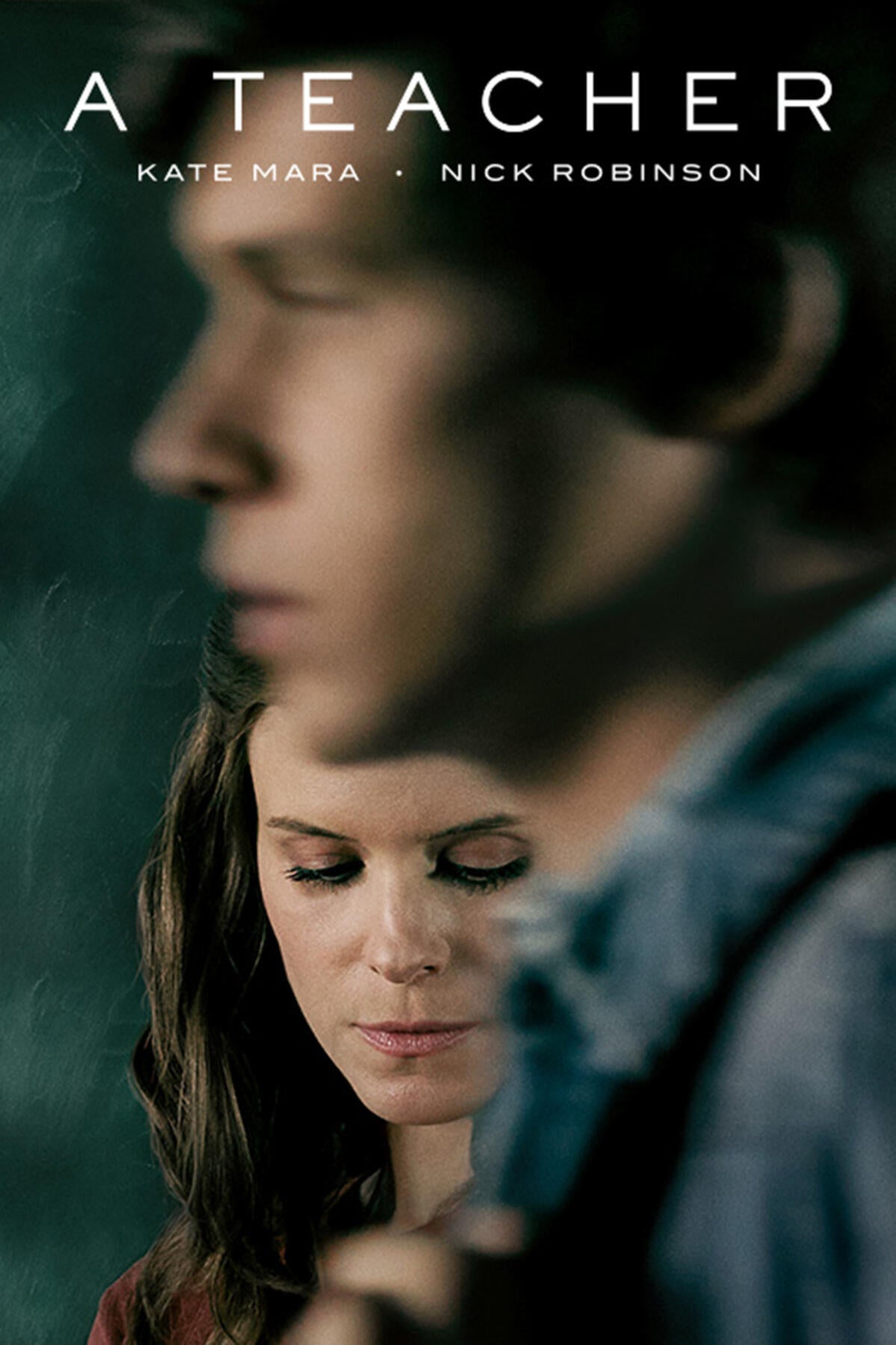Have you ever wondered why certain movie themes stick with us, making us think long after the credits roll? One such theme, perhaps a bit unsettling for some, is the idea of an **abducted by teacher movie**. These stories, you know, they often tap into some very deep-seated worries and curiosities we have as a society. It's almost as if they hold a mirror up to our fears about trust, about authority, and about the unexpected turns life can sometimes take. So, there's a real draw to these kinds of narratives, and it's worth taking a closer look at what makes them so compelling for many people.
The very concept of "abducted" itself, as a matter of fact, carries a lot of weight. My text tells us that to abduct someone is to seize and take away a person by force. It's about forcing someone to go somewhere with you, often using threats or even violence. This can involve cunning, or just simply carrying someone off by force. The words kidnapped, captured, seized, or even snatched, they all really paint a picture of someone being unwillingly removed from their life. This core meaning sets the stage for the intense drama we see in these films, creating a sense of urgency and danger right from the start.
So, when you add the element of a teacher to this already serious act, it changes the dynamic quite a bit. Teachers are typically seen as figures of trust, people who guide and protect. When that trust is broken in such a dramatic way, it creates a powerful conflict that audiences find very, very gripping. It's a betrayal that feels particularly sharp, and that's why these particular films, these **abducted by teacher movies**, often leave a lasting impression on those who watch them. We can't help but wonder about the "why" and the "how," can we?
- Sexy Lily Collins
- Miss Teschmacher
- Zach Efron Today
- Nathan Fillion One Life To Live
- Scooby Doo Mystery Cases
Table of Contents
- What Does "Abducted" Truly Mean in Film?
- Why Abducted by Teacher Movies Resonate
- Types of Narratives You Might See
- The Audience's Interest in These Films
- Frequently Asked Questions About These Films
- Looking at the Impact of Such Stories
What Does "Abducted" Truly Mean in Film?
When we talk about an **abducted by teacher movie**, the word "abducted" carries a very specific, chilling meaning. My text explains that to abduct is to seize and take away a person by force. It's not a gentle persuasion, you know, but a forceful act. This really sets the tone for the kind of story these films tell.
The definition goes on to say it means to force someone to go somewhere with you, often using threats or violence. So, it's about a lack of choice for the person being taken. They are made to go against their will, which is a very, very frightening idea for anyone to consider.
It can also mean to remove a person by force or cunning. This suggests that the act isn't always overt. Sometimes, it might involve trickery or manipulation, making the situation even more insidious. This layer of deception can make a film feel even more unsettling.
My text further clarifies that "abducted" can mean to carry off by force. Think about it: this phrase evokes a physical struggle, a clear act of power being asserted over another. This visual element is often key in how these stories are portrayed on screen, creating moments of intense tension.
The terms "kidnapped," "captured," "seized," and "snatched" are all synonyms for abducted. These words, in fact, highlight the sudden, often violent nature of the act. A person is made away with, ran off with, or made off with, losing their freedom in an instant. This sudden loss of control is a powerful narrative device.
In the context of an **abducted by teacher movie**, this definition becomes even more potent. The person doing the abducting, the teacher, is someone who was once trusted. This makes the act not just a crime, but a profound betrayal. It's a violation of a sacred trust, really.
The past simple and past participle of abduct is "abducted," so it describes an action that has already taken place. The film then often explores the aftermath, the consequences, and the desperate attempts to reverse what has happened. This focus on the "after" can be just as compelling as the initial act, you know.
When a war hero's young daughter is kidnapped, for example, he takes matters into his own hands. This kind of scenario, though not always involving a teacher, shows the desperation that follows an abduction. It highlights the lengths people will go to when someone they care about is taken. So, these films often explore the raw emotions tied to such an event.
Why Abducted by Teacher Movies Resonate
The appeal of an **abducted by teacher movie** often comes from its ability to tap into universal fears and societal anxieties. There's something deeply unsettling about a figure of authority, especially one meant to nurture and educate, becoming a perpetrator. This inversion of roles is a powerful hook, honestly.
One major reason these films resonate is the shattering of trust. Teachers are, by and large, seen as safe figures. They are supposed to guide young minds and provide a secure environment. When that trust is violated in such a dramatic way, it creates a very, very strong emotional response in viewers. It challenges our basic assumptions about safety.
Then there's the power dynamic. A teacher inherently holds a position of power over a student. This imbalance, when twisted into an abusive or coercive situation, makes the narrative incredibly tense. The vulnerability of the student against the authority of the teacher is a stark contrast, you know.
These stories also often delve into psychological drama. They explore the motivations of the abductor, the trauma of the abducted, and the desperate efforts of those trying to find them. It's not just about the physical act of taking someone; it's about the mental and emotional toll it takes on everyone involved. That's really quite a lot to think about.
Societal fears about child safety and the protection of the innocent also play a big part. News stories, sadly, sometimes echo these fictional plots, making the films feel more real and immediate. This connection to real-world concerns can make an **abducted by teacher movie** feel particularly impactful, don't you think?
Furthermore, these films often explore themes of survival and resilience. They show the human spirit's capacity to endure unimaginable hardship and to fight for freedom. This aspect can be inspiring, even within a dark narrative, offering a glimmer of hope amidst despair. It's a testament to the strength of people, you see.
For many, watching these movies is a way to safely explore frightening scenarios. It allows viewers to experience high-stakes drama from a distance, without actually being in danger. This vicarious experience can be thrilling, in a way, and also a way to process anxieties about the world around us.
The element of betrayal, in particular, makes these stories stand out. It's not just a stranger; it's someone who was supposed to be a guardian. This makes the crime feel deeply personal and much more shocking. That's why, I think, these specific narratives often stay with us for a long time.
Types of Narratives You Might See
Within the broad category of an **abducted by teacher movie**, there are several distinct types of stories filmmakers often tell. Each type approaches the core concept from a slightly different angle, offering unique insights and dramatic experiences. It's quite interesting to see the variations, honestly.
The Psychological Thriller Angle
Many **abducted by teacher movies** lean heavily into the psychological thriller genre. These films often focus less on the physical act of abduction and more on the mental games, the manipulation, and the slow unraveling of characters' minds. They can be very, very intense without showing much violence.
In these stories, the teacher might use cunning and emotional control rather than brute force. The tension builds from the psychological torment inflicted on the abducted person, and the clever tactics used by the abductor. It's about the battle of wits, you know, and the struggle for mental survival.
Viewers are often left guessing about the abductor's true motives or the victim's ultimate fate. The focus is on suspense, dread, and the slow reveal of dark secrets. These films can be incredibly unsettling because they play on our fears about what people are capable of doing, especially those we might trust.
The internal struggles of the characters are paramount. We see the fear, the desperation, and sometimes, the surprising resilience of the abducted. The abductor's twisted logic is also often explored, giving us a disturbing look into their mind. So, it's a deep dive into human nature, really.
The Drama and Aftermath
Another common approach for an **abducted by teacher movie** is to focus on the dramatic consequences and the aftermath of the abduction. These films often explore the impact on the victim's family, the police investigation, and the long-term psychological effects on everyone involved. It's a more emotional journey, typically.
These narratives might show the desperate search efforts, the media frenzy, and the emotional toll on parents or loved ones. The raw grief and determination to find the missing person are central to the plot. It's about the ripple effect of such a terrible event, you see.
The film might also delve into the legal aspects, such as the trial of the abductor or the challenges of bringing them to justice. This can add a layer of realism and explore themes of accountability and the justice system. It's quite a complex picture, often.
For the abducted person, if they are found, the story often continues with their journey of recovery and healing. This can be a very powerful and moving part of the narrative, showing the long road back from trauma. These films, in fact, aim to evoke empathy and understanding for the victims and their families.
Stories of Survival and Resilience
Some **abducted by teacher movies** highlight the incredible strength and resilience of the person who is taken. These stories focus on the victim's fight for survival, their cleverness, and their determination to escape or endure. They can be very, very inspiring, despite the dark subject matter.
These narratives often showcase the victim's ingenuity in finding ways to communicate, to resist, or to plan an escape. It's about their inner strength and their refusal to give up hope. This can be a truly powerful message for viewers, honestly.
The film might follow their attempts to outsmart their captor, to find allies, or to simply hold onto their sense of self in a terrifying situation. The focus is on their agency and their will to live, even when facing overwhelming odds. So, it's a testament to the human spirit.
These types of stories can be particularly gripping because they place the viewer squarely in the shoes of the abducted person, experiencing their fears and triumphs. They remind us that even in the darkest circumstances, the desire for freedom and safety can be a powerful motivator. It's a compelling look at courage, really.
The Audience's Interest in These Films
The audience for an **abducted by teacher movie** is quite varied, but they often share a common interest in compelling human drama and psychological depth. People are naturally drawn to stories that evoke strong emotions and make them think. It's a fundamental part of storytelling, you know.
One aspect of this interest is pure curiosity. Viewers want to understand the "why" behind such a shocking act. What could possibly drive a teacher to abduct a student? Exploring these dark motivations can be a fascinating, albeit disturbing, exercise. It's a look into the shadows of human behavior, really.
There's also a fascination with the unknown and the forbidden. These films often touch on taboo subjects, which can draw in an audience looking for something outside the ordinary. It's about exploring the boundaries of what we consider acceptable or safe, in a way.
For some, it's about experiencing suspense and thrills from a safe distance. The high stakes and intense situations in an **abducted by teacher movie** can provide an adrenaline rush without any real danger. It's a form of escapism, honestly, into a world of heightened drama.
Parents, in particular, might watch these films with a mixture of fear and a desire to understand potential dangers. It can be a way to process anxieties about their own children's safety, even if the scenarios are extreme. It's a very human reaction, you see, to try and prepare for the unthinkable.
People interested in true crime or psychological studies also find these films compelling. They offer a fictionalized lens through which to examine complex human behaviors, mental states, and the dynamics of power and control. It's almost like a case study, in some respects.
Finally, there's the human desire to see justice served and to witness resilience. Even in dark stories, audiences often root for the victim to survive or for the abductor to be caught. This hope for resolution and fairness is a powerful draw, you know, making these narratives feel complete.
So, whether it's for the suspense, the psychological exploration, or the dramatic tension, the interest in an **abducted by teacher movie** remains strong. These stories continue to captivate and challenge viewers, making them a significant part of cinematic storytelling. Learn more about thriller films on our site, and link to this page here for more about psychological dramas.
Frequently Asked Questions About These Films
People often have questions when discussing the topic of an **abducted by teacher movie**. These questions reflect common curiosities and concerns about this particular genre. Let's look at a few of them, shall we?
Are "abducted by teacher movies" based on true stories?
Many films in this genre draw inspiration from real-life events, sadly, but most are fictionalized for dramatic effect. Filmmakers often take elements from actual cases to create a compelling narrative. So, while not always a direct retelling, there can be a basis in reality, you know.
Why are these types of movies so popular?
These movies are popular for several reasons, honestly. They tap into deep-seated fears about trust and authority, creating intense psychological drama. The unexpected betrayal from a figure like a teacher makes the story particularly shocking and memorable for many viewers. It's a very powerful emotional experience, in a way.
What themes are typically explored in an "abducted by teacher movie"?
Common themes include betrayal of trust, power imbalances, psychological manipulation, and the struggle for survival. These films often explore the trauma experienced by the victim and the desperate efforts of those trying to rescue them. They also sometimes look at the motivations of the abductor, which can be quite complex, you see.
Looking at the Impact of Such Stories
An **abducted by teacher movie** does more than just entertain; it can also spark important conversations and raise awareness. These films, you know, often highlight vulnerabilities in our society and the potential for abuse of power. They make us think about the systems in place to protect young people.
By portraying these difficult scenarios, filmmakers can shed light on the psychological impact of abduction and betrayal. This can lead to a greater understanding of trauma and the importance of support for victims. It's a way to foster empathy, honestly, for those who have experienced similar situations.
These movies also sometimes contribute to discussions about child safety and the responsibilities of those in positions of authority. They can serve as a cautionary tale, prompting institutions to review their safeguards and policies. So, there's a practical side to their impact, too.
The narratives can also empower viewers by showing characters who fight back, survive, or seek justice. This portrayal of resilience can be a very, very powerful message, inspiring hope even in the face of despair. It reminds us of the strength of the human spirit, doesn't it?
Ultimately, an **abducted by teacher movie**, though often dark, plays a role in how we process and discuss difficult societal issues. They are a reflection of our fears and our enduring hope for safety and justice. This ongoing relevance ensures these stories continue to be made and watched, year after year, just like how societal concerns evolve, so too do the stories that reflect them. For more information on real-life scenarios and their broader impact, you might find resources on the National Center for Missing and Exploited Children website helpful.
- Wonka Sequel
- Read I Turned My Childhood Friend Into A Girl
- R Lee Smith
- Chasing Summer Vinyl
- What Is Wife In Spanish


